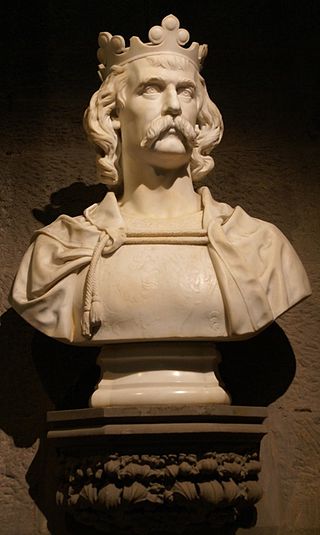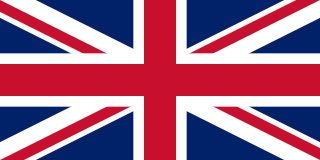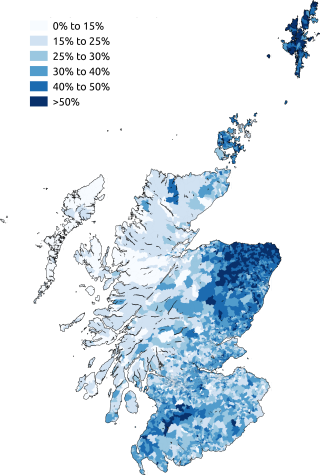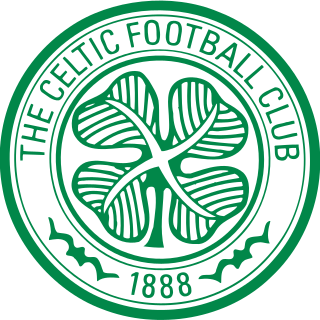
Edinburgh is the capital city of Scotland and one of its 32 council areas. The city is located in south-east Scotland, and is bounded to the north by the Firth of Forth estuary and to the south by the Pentland Hills. Edinburgh had a population of 506,520 in mid-2020, making it the second-most populous city in Scotland and the seventh-most populous in the United Kingdom. The wider metropolitan area has a population of 912,490.

Mary, Queen of Scots, also known as Mary Stuart or Mary I of Scotland, was Queen of Scotland from 14 December 1542 until her forced abdication in 1567.

Presbyterianism is a Reformed (Calvinist) Protestant tradition named for its form of church government by representative assemblies of elders. Though there are other Reformed churches that are structurally similar, the word Presbyterian is applied to churches that trace their roots to the Church of Scotland or to English Dissenter groups that formed during the English Civil War.

Robert I, popularly known as Robert the Bruce, was King of Scots from 1306 to his death in 1329. Robert led Scotland during the First War of Scottish Independence against England. He fought successfully during his reign to restore Scotland to an independent kingdom and is regarded in Scotland as a national hero.

Scotland is a country that is part of the United Kingdom. It contains nearly one-third of the United Kingdom's land area, consisting of the northern part of the island of Great Britain and more than 790 adjacent islands, principally in the archipelagos of the Hebrides and the Northern Isles. To the south-east, Scotland has its only land border, which is 96 miles (154 km) long and shared with England; the country is surrounded by the Atlantic Ocean to the north and west, the North Sea to the north-east and east, and the Irish Sea to the south. The population in 2022 was 5,436,600 and accounts for 8% of the population of the UK. Edinburgh is the capital and Glasgow is the largest of the cities of Scotland.

Scottish Gaelic, also known as Scots Gaelic or simply Gaelic, is a Goidelic language native to the Gaels of Scotland. As a Goidelic language, Scottish Gaelic, as well as both Irish and Manx, developed out of Old Irish. It became a distinct spoken language sometime in the 13th century in the Middle Irish period, although a common literary language was shared by the Gaels of both Ireland and Scotland until well into the 17th century. Most of modern Scotland was once Gaelic-speaking, as evidenced especially by Gaelic-language place names.

The Highlands is a historical region of Scotland. Culturally, the Highlands and the Lowlands diverged from the Late Middle Ages into the modern period, when Lowland Scots language replaced Scottish Gaelic throughout most of the Lowlands. The term is also used for the area north and west of the Highland Boundary Fault, although the exact boundaries are not clearly defined, particularly to the east. The Great Glen divides the Grampian Mountains to the southeast from the Northwest Highlands. The Scottish Gaelic name of A' Ghàidhealtachd literally means "the place of the Gaels" and traditionally, from a Gaelic-speaking point of view, includes both the Western Isles and the Highlands.

The United Kingdom of Great Britain and Northern Ireland, commonly known as the United Kingdom (UK) or Britain, is a country in Northwestern Europe, off the coast of the continental mainland. It comprises England, Scotland, Wales, and Northern Ireland. The UK includes the island of Great Britain, the north-eastern part of the island of Ireland, and most of the smaller islands within the British Isles. Northern Ireland shares a land border with the Republic of Ireland; otherwise, the United Kingdom is surrounded by the Atlantic Ocean, the North Sea, the English Channel, the Celtic Sea, and the Irish Sea. The total area of the United Kingdom is 94,354 square miles (244,376 km2), with an estimated population of nearly 67.6 million people in 2022.

Scots is an Anglic language variety in the West Germanic language family, spoken in Scotland and parts of Ulster in the north of Ireland. Most commonly spoken in the Scottish Lowlands, Northern Isles, and northern Ulster, it is sometimes called Lowland Scots to distinguish it from Scottish Gaelic, the Goidelic Celtic language that was historically restricted to most of the Scottish Highlands, the Hebrides, and Galloway after the sixteenth century; or Broad Scots to distinguish it from Scottish Standard English. Modern Scots is a sister language of Modern English, as the two diverged independently from the same source: Early Middle English (1100–1300).

Glasgow is the most populous city in Scotland, the third-most populous city in the United Kingdom, and the 27th-most populous city in Europe. In 2022, it had an estimated population as a defined locality of 632,350 and anchored an urban settlement of 1,028,220. Glasgow became a county in 1893, the city having previously been in the historic county of Lanarkshire, and later growing to also include settlements that were once part of Renfrewshire and Dunbartonshire. It now forms the Glasgow City Council area, one of the 32 council areas of Scotland, and is administered by Glasgow City Council.

The Celtic Football Club, commonly known as Celtic, is a professional football club in Glasgow, Scotland. The team competes in the Scottish Premiership, the top division of Scottish football. The club was founded in 1887 with the purpose of alleviating poverty in the Irish–Scots population in the city's East End area. They played their first match in May 1888, a friendly match against Rangers which Celtic won 5–2. Celtic established themselves within Scottish football, winning six successive league titles during the first decade of the 20th century. The club enjoyed their greatest successes during the 1960s and 70s under Jock Stein, when they won nine consecutive league titles and the 1967 European Cup. Celtic have played in green and white throughout their history, adopting in 1903 the hoops that have been used ever since.

Rangers Football Club is a professional football club in Glasgow, Scotland. The team competes in the Scottish Premiership, the top division of Scottish football. The club is often referred to colloquially as Glasgow Rangers, particularly outside Scotland, though this has never been its official name. The fourth-oldest football club in Scotland, Rangers was founded by four teenage boys as they walked through West End Park in March 1872 where they discussed the idea of forming a football club, and played its first match against the now defunct Callander at the Fleshers' Haugh area of Glasgow Green in May of the same year. Rangers' home ground, Ibrox Stadium, designed by stadium architect Archibald Leitch and opened in 1929, is a Category B listed building and the third-largest football stadium in Scotland. The club has always played in royal blue shirts.

James VI and I was King of Scotland as James VI from 24 July 1567 and King of England and Ireland as James I from the union of the Scottish and English crowns on 24 March 1603 until his death in 1625. Although he long tried to get both countries to adopt a closer political union, the kingdoms of Scotland and England remained sovereign states, with their own parliaments, judiciaries, and laws, ruled by James in personal union. He was the longest-reigning monarch of the Kingdom of Scotland.

Dundee Football Club is a professional football club based in the city of Dundee, Scotland, founded in 1893. The team are nicknamed "The Dark Blues" or "The Dee". The club plays its home matches at Dens Park.

The Scotland men's national football team represents Scotland in men's international football and is controlled by the Scottish Football Association. It competes in three major professional tournaments: the FIFA World Cup, UEFA Nations League and the UEFA European Championship. Scotland, as a country of the United Kingdom, is not a member of the International Olympic Committee, and therefore the national team does not compete in the Olympic Games. The majority of Scotland's home matches are played at the national stadium, Hampden Park.

Great Britain is an island in the North Atlantic Ocean off the north-west coast of continental Europe, consisting of the countries England, Scotland and Wales. With an area of 209,331 km2 (80,823 sq mi), it is the largest of the British Isles, the largest European island and the ninth-largest island in the world. It is dominated by a maritime climate with narrow temperature differences between seasons. The island of Ireland, with an area 40 per cent that of Great Britain, is to the west—these islands, along with over 1,000 smaller surrounding islands and named substantial rocks, form the British Isles archipelago.

Since 1922, the United Kingdom has been made up of four countries: England, Scotland, Wales and Northern Ireland. The UK Prime Minister's website has used the phrase "countries within a country" to describe the United Kingdom. Some statistical summaries, such as those for the twelve NUTS 1 regions of the UK, refer to Northern Ireland, Scotland, and Wales as "regions". With regard to Northern Ireland, Scotland and Wales particularly, the descriptive name one uses "can be controversial, with the choice often revealing one's political preferences".

The Scottish people or Scots are an ethnic group and nation native to Scotland. Historically, they emerged in the early Middle Ages from an amalgamation of two Celtic peoples, the Picts and Gaels, who founded the Kingdom of Scotland in the 9th century. In the following two centuries, Celtic-speaking Cumbrians of Strathclyde and Germanic-speaking Angles of Northumbria became part of Scotland. In the High Middle Ages, during the 12th-century Davidian Revolution, small numbers of Norman nobles migrated to the Lowlands. In the 13th century, the Norse-Gaels of the Western Isles became part of Scotland, followed by the Norse of the Northern Isles in the 15th century.

The Scottish Premiership known as the cinch Premiership for sponsorship reasons, is the top division of the Scottish Professional Football League (SPFL), the league competition for men's professional football clubs in Scotland. The Scottish Premiership was established in July 2013, after the SPFL was formed by a merger of the Scottish Premier League and Scottish Football League. There are 12 teams in this division, with each team playing 38 matches per season. Sixteen clubs have played in the Scottish Premiership since its creation in the 2013–14 season. Celtic are the current league champions, having won the 2023–24 Scottish Premiership.

















